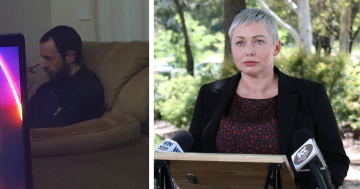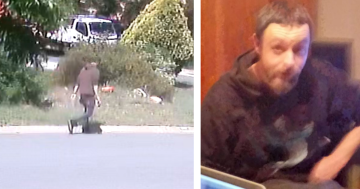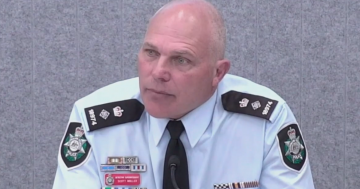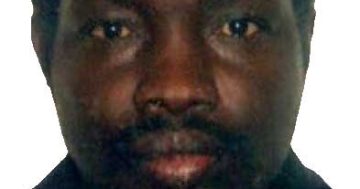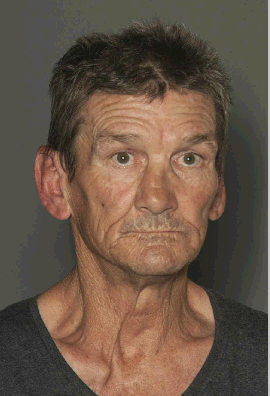
Robert ‘Robbie’ Jacob has been missing since 2015. Photo: ACT Policing.
Robert Hal Jacob was last seen eight years ago in November 2015 at Canberra’s Civic bus interchange. His family says the Canberran’s disappearance was “extremely out of character” and they are still searching for answers.
Known as Robbie to his loved ones, the beloved father and grandfather is one of 14 long-term missing people in the ACT.
His case has been chosen this National Missing Persons Week (30 July to 5 August) to remind the community he remains unfound.
ACT Police Detective Sergeant Emma Quade says Robbie’s case also serves as a sad reminder to look out for people in the capital.
“Robbie was particularly vulnerable. He was quite unwell and suffered addiction problems throughout his life,” she said. “If members of the community see someone who’s unwell or who looks like they’re lost or needs help, please speak to police.”
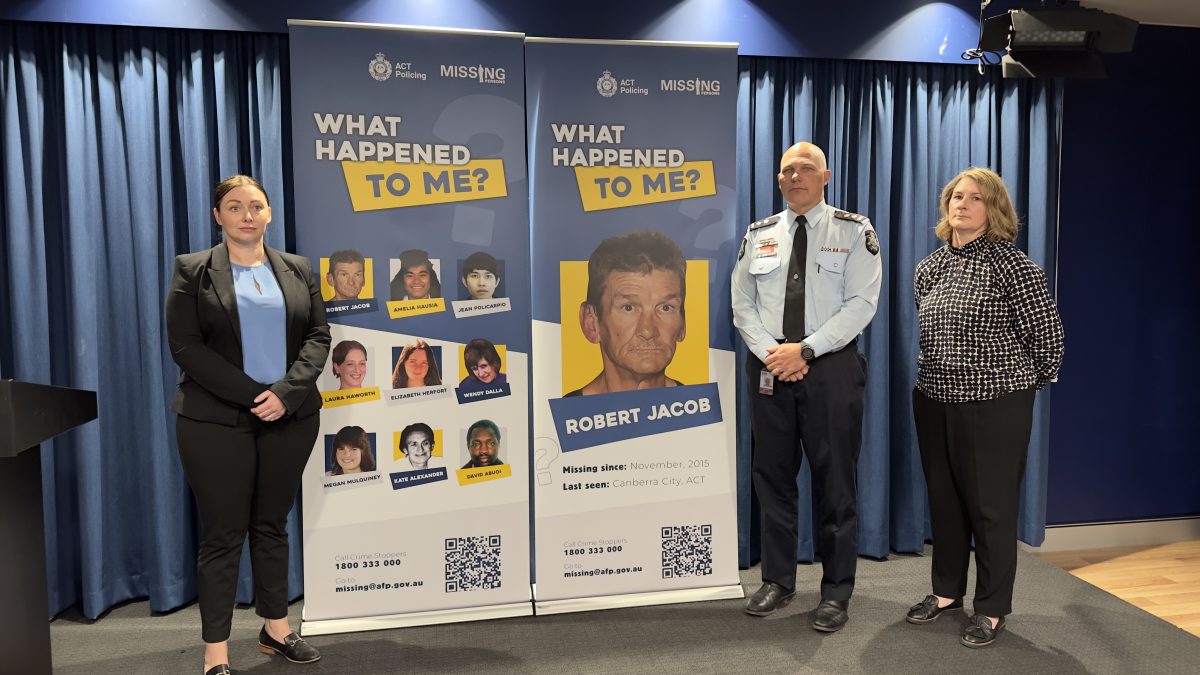
Detective Sergeant Emma Quade, Superintendent Scott Moller and Leading Senior Constable Colleen McKillop are all members of the ACT’s long-term missing persons team. Photo: Travis Radford.
Robbie was reported missing by his daughter in December 2015 after she had uncharacteristically not heard from her father for weeks.
He was in his mid-50s and described as Caucasian and 179 cm tall with a slim build, short greying dark brown hair, brown eyes and tattooed arms. But beyond his appearance, his family describe a man who was well known and liked in Canberra and “a bit of a larrikin”.
“He is tremendously loved and missed by his children and grandchildren,” the family wrote in a statement for this week’s appeal.
“Robbie is extremely generous. He would say, ‘If it’s your last $10 and someone really needs it, you give it to them’.”
They said he rarely showed up without a gift in hand for his grandchildren and also enjoyed poetry, football and cycling.
DS Quade says Robbie was also well known to police, who regularly saw him in Canberra city and spoke with him.
When Robbie was reported missing in December, police assessed him as a ‘vulnerable person’ and mounted an extensive search. They spoke with his family, known associates and health services he had accessed. Police also conducted a number of searches in bushland, all to no avail.
“When we come to a point where we don’t have much information on where somebody is, that’s where pattern of life is really important to us,” DS Quade explains. “We can start looking in places where somebody has frequented in the past or is most likely to go to.”
These places are identified by combining a range of data, such as mobile phone use, social media use and banking activity, into a ‘pattern of life’.
Robbie’s case was made more complicated by the fact he had never owned a mobile phone and therefore had no digital footprint to examine.
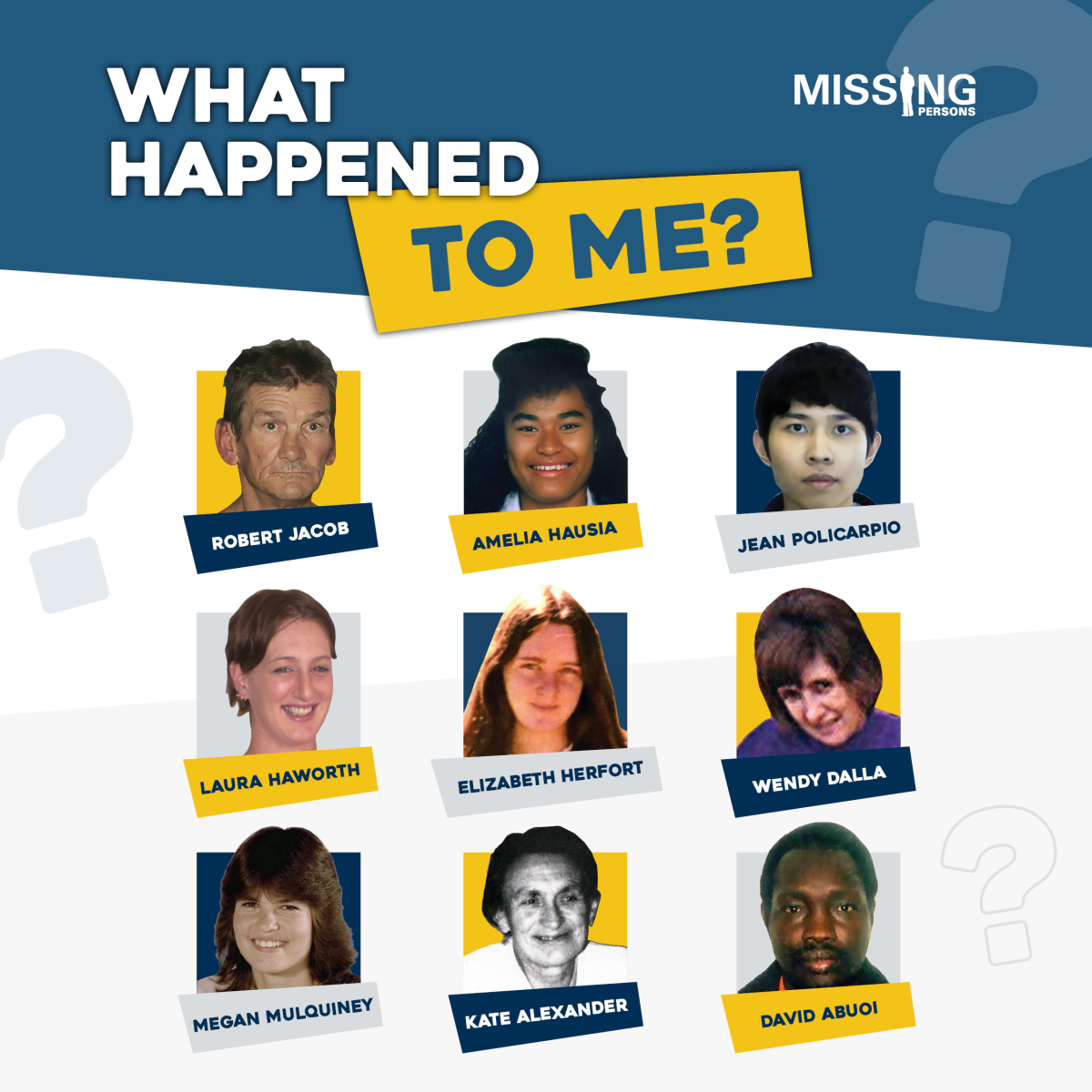
There are 14 people on the ACT’s long-term missing persons list, nine of which are advertised with the families’ permission. Photo: ACT Policing.
By March 2016, three months after he was reported missing, Robbie was added to the ACT’s list of long-term missing people. While most missing people are found within three months (all 353 people reported missing in the ACT in 2022 were located), a list is kept of the handful who are not.
This list of 14 missing people includes men and women who have been missing for as little as three months, up to more than 40 years.
Robbie’s disappearance is one of the nine cases that have been regularly advertised by police with permission from the families.
People are only taken off the list when found. Most recently, one unidentified person was located in another jurisdiction in 2022.
DS Quade says while some new information in Robbie’s case has been received since the time he went missing, none of it had assisted police in finding him and the ‘proof of life’ checks conducted by police in the years since 2015 have not found any new leads.
“Robbie has not been using any of anything since the time that he went missing,” she says. “We’re always hopeful that we’ll find our missing persons alive, but we also just want to find them.”
If you have any information regarding Robert ‘Robbie’ Jacob, please contact Crime Stoppers on 1800 333 000.
If a person is missing and you have concerns for their welfare, please contact ACT Policing immediately on 131 444.












